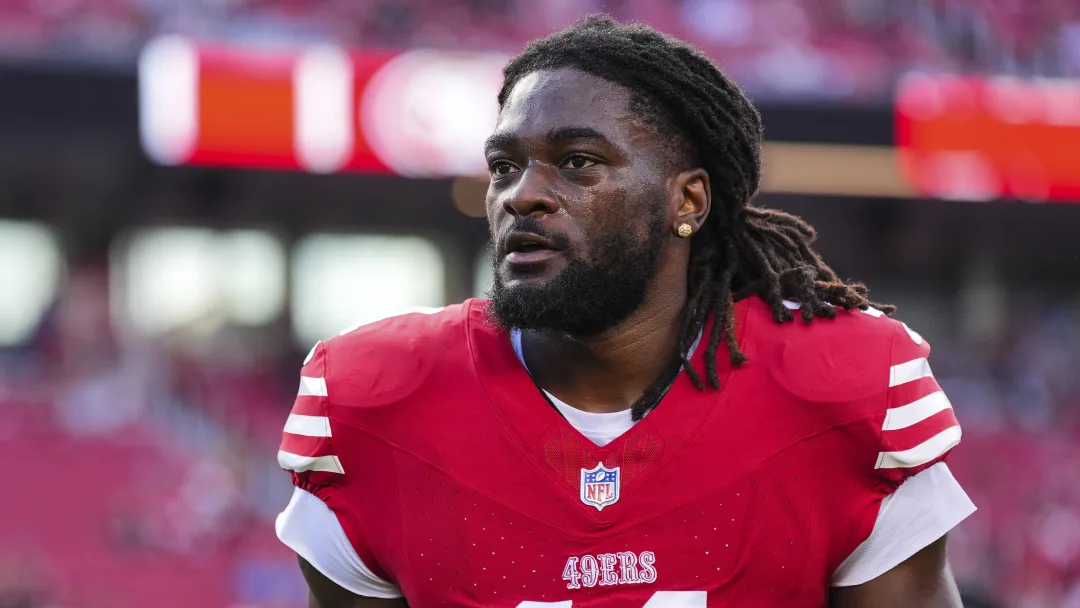
Brandon Aiyuk is aiming to be paid like one of the NFL’s top wide receivers, but it seems that neither his team, the San Francisco 49ers, nor other franchises across the league, share that perspective.
Reports from the offseason indicate that Aiyuk was seeking a contract worth around $30 million per year, while the 49ers were offering something in the $26 million to $28 million range. The gap between these figures, along with other undisclosed factors, ultimately led to a standoff and a subsequent trade request. Despite numerous rumors of an imminent trade, no deal has materialized.
Three teams were seriously considered as potential trade partners: the Cleveland Browns, New England Patriots, and Pittsburgh Steelers. However, Aiyuk’s willingness to agree to a trade was contingent on signing a contract extension. He reportedly declined the idea of moving to either the Browns or Patriots.
This left the Steelers as the most viable option. Although there were reports suggesting that a trade between San Francisco and Pittsburgh was close, no agreement was finalized.
The reason why may now be clearer. According to NFL insider Albert Breer, writing in his weekly MMQB column for Sports Illustrated, the Steelers were not prepared to meet Aiyuk’s demands for a top-dollar extension if they acquired him.
Breer explained that Aiyuk faced a choice: remain with the 49ers, where he’s been the leading receiver for the past two seasons, or join a run-heavy Steelers offense under coordinator Arthur Smith, led by a declining veteran quarterback in Russell Wilson and an inconsistent youngster in Justin Fields.
In essence, Aiyuk could either stay in a favorable situation with the 49ers for a similar financial offer or move to a less desirable scenario. San Francisco likely recognized this dynamic and called Aiyuk’s bluff, knowing the Steelers were unlikely to offer the kind of compensation the 49ers would accept in a trade.
Furthermore, the 49ers likely anticipated that Pittsburgh wouldn’t outbid them on a new extension, leaving Aiyuk with little choice but to accept whatever deal the Niners ultimately offer—even if it falls short of his initial expectations.

Leave a Reply